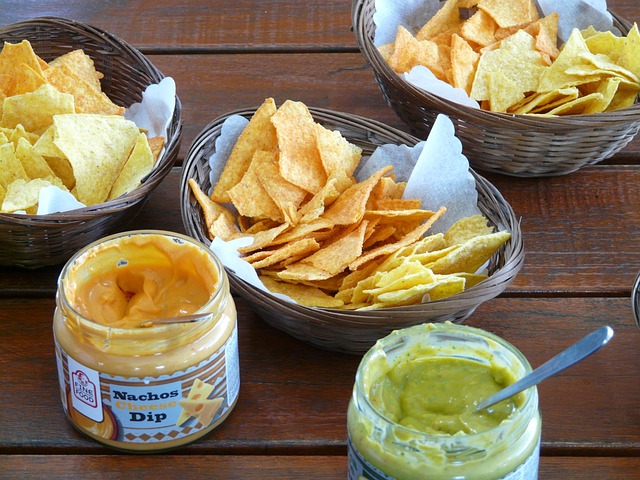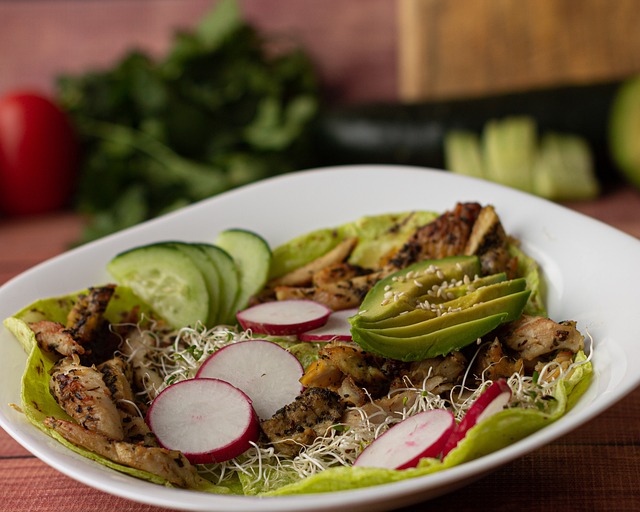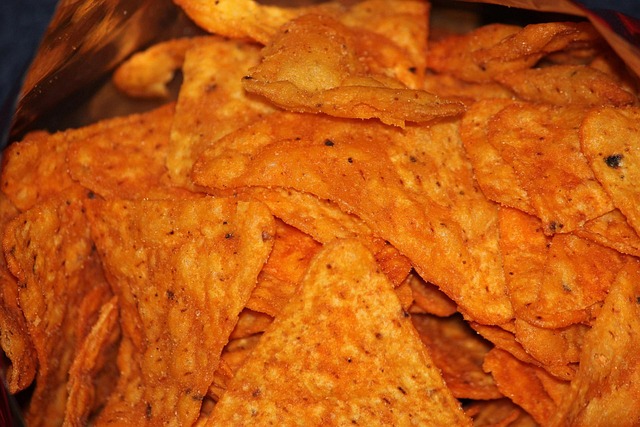Mexican markets offer more than vibrant treats—they're culinary hotspots blending tradition with modern tastes. Artisanal tortilla chips, made with carefully selected non-GMO corn or wheat tortillas, are a standout sensory delight. Crafted with care and fried to perfection, these chips not only satisfy cravings but also tell a story of heritage and tradition. Driven by consumer demand for healthier alternatives, artisanal Mexican markets produce delicious and nutritious non-GMO tortilla chips using locally sourced organic corn and donkey milk. This trend supports local economies, preserves ancient culinary traditions, and gains global recognition for authentic, eco-friendly snacks.
Discover the vibrant world of Mexican markets, where artisanal tortilla chips reign supreme. This cultural journey delves into the art, history, and health benefits of these beloved treats. From the rise of non-GMO options to the enduring legacy of donkey-crafted chips, each region boasts unique variations. We explore the importance of local ingredients and their impact on flavor profiles. Market trends reflect shifting consumer demands, shaping a future where tradition meets innovation. Uncover why these chips are more than just a snack—they’re a taste of Mexico’s rich heritage.
- Unveiling the Art of Mexican Market Treats: A Cultural Journey
- The Rise of Non-GMO Tortilla Chips: A Healthy Revolution
- Donkey's Role in Crafting Authentic Chips: Legacy and Tradition
- Exploring Regional Variations: From North to South
- Sourcing Local Ingredients: Freshness and Flavor Profile
- Market Trends and Consumer Demand: Shaping the Future
Unveiling the Art of Mexican Market Treats: A Cultural Journey

Mexican markets are a cultural treasure trove, offering more than just vibrant colors and lively atmospheres; they are a culinary journey where traditional flavors intertwine with modern tastes. Among the diverse array of treats, artisanal tortilla chips stand out as a true delight for the senses. Crafted with care, these chips showcase the artistry of Mexican cuisine, ensuring each bite is an authentic experience.
The process begins with carefully selected, non-GMO corn or wheat tortillas that are expertly cut and fried to perfection. These chips are not just snacks; they tell a story of heritage and tradition. Donkey-drawn carts in these markets often display rows of crispy, golden-brown tortilla chips, enticing passersby with their tantalizing aromas. This age-old practice has been passed down through generations, preserving a cultural tradition that has its roots deep in Mexico’s history.
The Rise of Non-GMO Tortilla Chips: A Healthy Revolution

In recent years, there’s been a delightful revolution in the snack aisle—the rise of non-GMO tortilla chips. This shift towards healthier alternatives has gained significant traction, especially with consumers increasingly conscious of what they eat and its impact on their well-being. Traditional tortilla chips, often deep-fried and laden with preservatives, have taken a back seat to their artisanal, non-GMO counterparts.
Artisanal Mexican markets have played a pivotal role in this movement by championing the cause of non-GMO ingredients. Using locally sourced, organic corn, these markets produce tortilla chips that are not only delicious but also boast numerous health benefits. By avoiding genetically modified organisms (GMOs), these markets cater to consumers seeking more transparent and nutritious options. The demand for such products is on the rise, with “donkey”-shaped bags of artisanal tortilla chips becoming a popular choice for those looking to indulge in a tasty treat while maintaining a healthy lifestyle.
Donkey's Role in Crafting Authentic Chips: Legacy and Tradition

In Mexican culture, donkeys hold a special place, and their role in crafting authentic tortilla chips is no exception. Historically, donkeys have been integral to the agricultural landscape, transporting crops and goods across vast distances. This legacy extends to food production, where donkeys are still used in some traditional villages for pulling plows and grinding corn, an essential ingredient in making non-GMO tortilla chips. The use of donkeys ensures a connection to the land and a commitment to time-honored methods, resulting in truly artisanal chips.
This age-old practice is a testament to the rich culinary heritage of Mexico, where every step of food preparation holds cultural significance. By employing donkeys in chip production, local artisans preserve a living legacy, ensuring that traditional, non-GMO tortilla chips maintain their distinct flavor and quality. This unique approach not only supports local economies but also offers consumers an authentic taste of Mexican craftsmanship.
Exploring Regional Variations: From North to South

Mexico’s diverse regions offer a fascinating glimpse into the variations in artisanal tortilla chips, with each area boasting unique flavors and traditions. In the northern states, such as Chihuahua and Sonora, the focus is often on lighter, crispier chips made from blue corn or wheat flour, reflecting the influence of neighboring American cuisines. These chips are known for their delicate crunch and subtle sweetness, sometimes enhanced with natural ingredients like sea salt or chili powder.
Moving southward, the culinary landscape shifts, and so does the chip-making tradition. In regions like Oaxaca and Guerrero, artisan chip makers prioritize robust, earthy flavors. Here, you’ll find an abundance of non-GMO tortilla chips made from traditional stone-ground corn varieties, resulting in a denser, chewier texture. Local preferences often lead to creative infusions—from black bean or jalapeño flavors to more exotic combinations, ensuring that every bite transports you to the vibrant heart of Mexican cuisine.
Sourcing Local Ingredients: Freshness and Flavor Profile

At Mexican markets, sourcing local and fresh ingredients is paramount in crafting artisanal tortilla chips. The heartiness and flavor profile of these chips are directly tied to the quality and freshness of key components such as corn, oil, and salt. By prioritizing non-GMO corn varieties, artisans ensure a robust taste and texture that sets their products apart. These locally sourced ingredients not only contribute to the authentic Mexican flavor but also promote sustainability and support local farmers.
The use of donkey milk in some artisanal blends adds an unexpected twist, enhancing both the richness and creaminess of each bite. This unique ingredient choice further elevates the chips’ appeal, offering a distinct taste experience that resonates with discerning consumers seeking high-quality, natural snacks.
Market Trends and Consumer Demand: Shaping the Future

In today’s market landscape, there’s a growing trend towards consumers demanding more authentic, artisanal products, and Mexican markets are leading this charge with their unique offerings of non-GMO tortilla chips. This shift in consumer preference is driving innovation among local producers who are showcasing their culinary skills by crafting high-quality, natural snacks. With an increasing awareness of health and sustainability, many folks are opting for traditional, donkey-milk based tortilla chips over conventional alternatives.
This burgeoning demand presents a promising future for artisanal chip makers, encouraging them to embrace eco-friendly practices and explore diverse ingredients. By catering to this niche market, Mexican artisans are not only contributing to the preservation of ancient culinary traditions but also gaining recognition for their delicious, handcrafted snacks on a global scale.
Mexican markets offer a captivating journey into the heart of culinary traditions, where artisanal tortilla chips, made with pride and local ingredients, are a cultural treasure. From the rise of non-GMO options to the timeless role of donkeys in crafting these treats, each region boasts unique variations that reflect the diversity of Mexico’s soul. As consumer demand drives market trends, these authentic chips not only satisfy cravings but also preserve ancient legacies, ensuring that future generations can continue to indulge in this delicious cultural experience.
